-
 New Epstein accuser claims sexual encounter with ex-prince Andrew: report
New Epstein accuser claims sexual encounter with ex-prince Andrew: report
-
Italy's extrovert Olympic icon Alberto Tomba insists he is 'shy guy'

-
 Chloe Kim goes for unprecedented snowboard halfpipe Olympic treble
Chloe Kim goes for unprecedented snowboard halfpipe Olympic treble
-
Pakistan combing for perpetrators after deadly separatist attacks

-
 Israel partially reopens Gaza's Rafah crossing
Israel partially reopens Gaza's Rafah crossing
-
Iran declares European armies 'terrorist groups' after IRGC designation

-
 Snowstorm disrupts travel in southern US as blast of icy weather widens
Snowstorm disrupts travel in southern US as blast of icy weather widens
-
Denmark's Andresen swoops to win Cadel Evans Road Race

-
 Volkanovski beats Lopes in rematch to defend UFC featherweight title
Volkanovski beats Lopes in rematch to defend UFC featherweight title
-
Sea of colour as Malaysia's Hindus mark Thaipusam with piercings and prayer

-
 Exiled Tibetans choose leaders for lost homeland
Exiled Tibetans choose leaders for lost homeland
-
Afghan returnees in Bamiyan struggle despite new homes

-
 Mired in economic trouble, Bangladesh pins hopes on election boost
Mired in economic trouble, Bangladesh pins hopes on election boost
-
Chinese cash in jewellery at automated gold recyclers as prices soar

-
 Israel to partially reopen Gaza's Rafah crossing
Israel to partially reopen Gaza's Rafah crossing
-
'Quiet assassin' Rybakina targets world number one after Melbourne win

-
 Deportation raids drive Minneapolis immigrant family into hiding
Deportation raids drive Minneapolis immigrant family into hiding
-
Nvidia boss insists 'huge' investment in OpenAI on track

-
 'Immortal' Indian comics keep up with changing times
'Immortal' Indian comics keep up with changing times
-
With Trump mum, last US-Russia nuclear pact set to end

-
 In Sudan's old port of Suakin, dreams of a tourism revival
In Sudan's old port of Suakin, dreams of a tourism revival
-
Narco violence dominates as Costa Rica votes for president

-
 Snowstorm barrels into southern US as blast of icy weather widens
Snowstorm barrels into southern US as blast of icy weather widens
-
LA Olympic chief 'deeply regrets' flirty Maxwell emails in Epstein files

-
 Rose powers to commanding six-shot lead at Torrey Pines
Rose powers to commanding six-shot lead at Torrey Pines
-
Barca wasteful but beat Elche to extend Liga lead

-
 Konate cut short compassionate leave to ease Liverpool injury crisis
Konate cut short compassionate leave to ease Liverpool injury crisis
-
Dodgers manager Roberts says Ohtani won't pitch in Classic

-
 Arsenal stretch Premier League lead as Chelsea, Liverpool stage comebacks
Arsenal stretch Premier League lead as Chelsea, Liverpool stage comebacks
-
Korda defies cold and wind to lead LPGA opener

-
 New head of US mission in Venezuela arrives as ties warm
New head of US mission in Venezuela arrives as ties warm
-
Barca triumph at Elche to extend Liga lead

-
 Ekitike, Wirtz give Liverpool sight of bright future in Newcastle win
Ekitike, Wirtz give Liverpool sight of bright future in Newcastle win
-
West Indies 'tick boxes' in shortened T20 against South Africa

-
 Chelsea have something 'special' says Rosenior
Chelsea have something 'special' says Rosenior
-
De Zerbi 'ready to go to war' to solve Marseille troubles

-
 Hornets hold off Wemby's Spurs for sixth NBA win in a row
Hornets hold off Wemby's Spurs for sixth NBA win in a row
-
Moyes blasts killjoy booking after Everton's late leveller
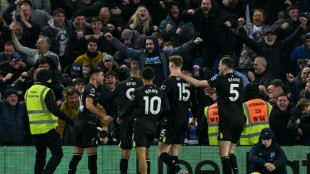
-
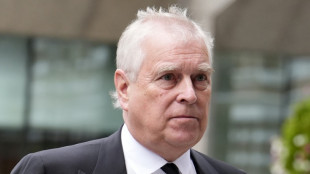 Ex-prince Andrew again caught up in Epstein scandal
Ex-prince Andrew again caught up in Epstein scandal
-
Bayern held at Hamburg to open door for Dortmund
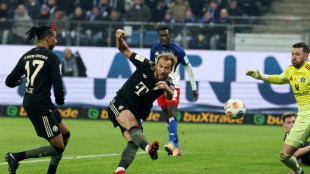
-
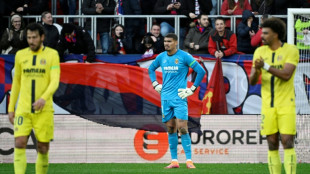 Atletico stumble to draw at Levante, Villarreal held
Atletico stumble to draw at Levante, Villarreal held
-
Chelsea stage impressive fightback to beat West Ham
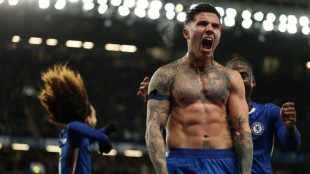
-
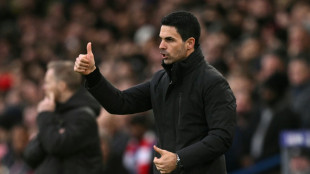 Arsenal stretch Premier League lead, Chelsea fightback breaks Hammers' hearts
Arsenal stretch Premier League lead, Chelsea fightback breaks Hammers' hearts
-
Napoli edge Fiorentina as injury crisis deepens
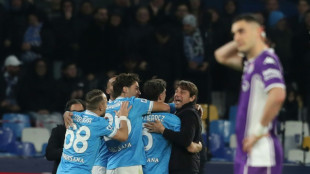
-
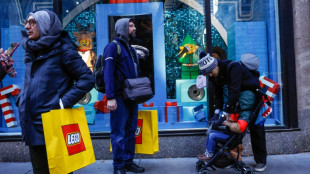 How Lego got swept up in US-Mexico trade frictions
How Lego got swept up in US-Mexico trade frictions
-
UK rights campaigner Tatchell arrested at pro-Palestinian protest
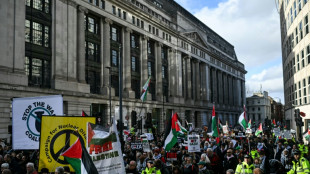
-
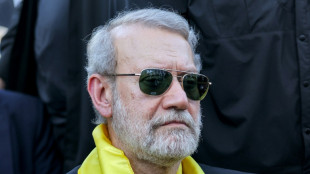 Iran says progress made towards US talks despite attack jitters
Iran says progress made towards US talks despite attack jitters
-
'Empowering': Ireland's first female sumo wrestler blazes a trail

-
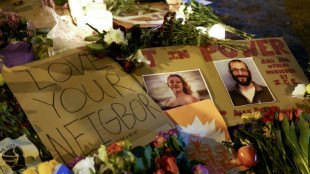 US judge denies Minnesota bid to suspend immigration sweeps
US judge denies Minnesota bid to suspend immigration sweeps
-
AC Milan prolong France 'keeper Maignan deal by five years
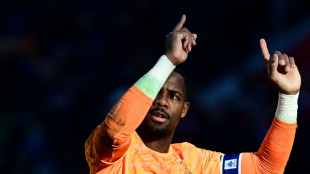
Orban and Putin's Shadow Deal
Hungarian Prime Minister Viktor Orban has long been a polarizing figure in the European Union, often clashing with Brussels over his nationalist stance and cozy relationships with authoritarian leaders. Among these, his bond with Russian President Vladimir Putin has sparked widespread unease. Their partnership, marked by secretive agreements and high-profile meetings, has cast a shadow over Hungary’s role in Europe, raising questions about its loyalty to EU principles and its implications for regional stability.
Central to this controversy are energy agreements that tie Hungary closely to Russia. Despite EU efforts to wean itself off Russian energy amid the Ukraine war, Hungary has doubled down on its dependence. In 2022, Orban locked in a long-term gas deal with Moscow, securing favorable rates for Hungary. This move has been a boon for the country’s economy but has drawn ire for propping up Russia’s finances under global sanctions and weakening Europe’s united front.
The collaboration extends beyond gas. Hungary has tapped Russia’s Rosatom to upgrade its Paks nuclear facility, a multi-billion-euro project funded largely by a Russian loan. Details of the deal remain murky, with allegations of corruption swirling around it. Observers worry that this not only deepens Hungary’s debt to Russia but also hands Putin a foothold in critical European infrastructure.
Diplomatically, Orban has stirred the pot further. In July 2024, he made an unexpected trip to Moscow to meet Putin, touting “peace talks” for Ukraine just as Hungary took the EU Council presidency. EU leaders slammed the visit, insisting Orban had no authority to speak for the bloc. Days earlier, he’d pitched a ceasefire to Ukraine’s Volodymyr Zelenskyy in Kyiv—a suggestion Kyiv dismissed as a win for Russia. Orban framed these moves as a “peace mission,” but many see them as a bid to bolster ties with Putin while playing both sides.
The Orban-Putin alliance isn’t just pragmatic—it’s rooted in shared ideology. Both leaders champion “traditional values” and reject liberal democracy, with Orban openly admiring Putin’s strongman tactics. This kinship has seen Hungary obstruct EU sanctions on Russia and stall aid to Ukraine, frustrating allies and amplifying divisions within the bloc.
The fallout is significant. Orban’s actions strain Hungary’s standing in the EU and NATO, casting doubt on its commitment to collective goals. They also signal to other populist figures that defying the EU for national gain is viable. As Europe navigates Russia’s aggression, the Orban-Putin pact remains a flashpoint, its full consequences still unfolding.

Trump's attack on the Dollar

Greenland Deal – and now?

Trump's hesitation in Iran

Cuba’s bleak oil crisis

Venezuela’s economic roadmap

Iran unrest and US threats

Iran's collapse fuels Revolt

Brexit's broken promises

France's debt spiral Crisis

Trump preps Allies for Ven Op

UK politics: Outlook for 2026



